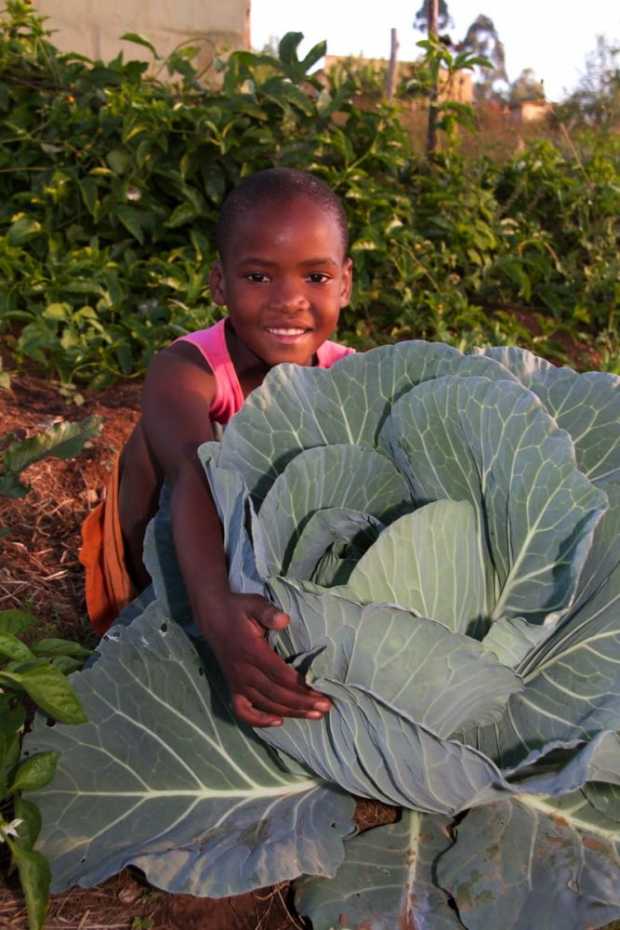Not a member yet? Sign Up!
Info
Please use real email address to activate your registration

In honor of Mr. Nelson Mandela we are proud to feature a guest blog post by an inspirational friend, Jeunesse Park a visionary ecopreneur and doer who founded a remarkable organization in South Africa.
FTFA
The global environment is under strain. Environmental limits have been reached or surpassed. The time to act is now! Food & Trees for Africa (FTFA) is one organisation that realizes this. For the past 23 years FTFA has been contributing to greening, climate change action, sustainable natural resource management, permaculture food security and organic farming in South Africa.
A vital part of FTFAs mission is to create awareness and to contribute to local economic enterprise, sustainable development, enhanced environments, capacity building and skills development.


FTFA works in partnership, and with the support, endorsement and cooperation of government, the private and public sectors, aid agencies, organisations, media and individuals to achieve these aims through six programmes – Trees for All, Trees for Homes, EduPlant, Bamboo for Africa, FEED Africa and Food Gardens for Africa.

These lead to healthier lives for impoverished communities, more sustainable green environments and increased awareness of how we human beings impact the planet and what can be done to address this.
FTFA has distributed over 4.2 million trees, facilitated thousands of organic food gardens, 140 hectares of bamboo and several organic farms for the poorest.
See FTFA activities in this video clip.
Food gardens for Africa
Food gardens are fundamental in ensuring food security. This is becoming an increasing reality with climate change affecting large scale agricultural yields and rising food costs.
Many communities and schools apply to FTFA for assistance to develop Permaculture food gardens. There are currently approximately a thousand applications awaiting assistance.

FTFAs decades of experience shows that ideally food gardens require support over a three year period, to ensure participants receive the necessary training and assistance throughout the seasons. Participants require commitment, passion and drive. The project members/gardeners contribute their labour, knowledge, skills and, in some instances, gardening tools.
FTFA implements food gardens through three types of intervention.
1. Permaculture Starter Packs (PSPs)
Since commitment and viability of projects are difficult to discern from an application form, or a preliminary visit to assess the project, FTFA initiated the PSP. This helps minimise risk, evaluate which projects are worthy of further investment and weed out those which are looking for hand outs, thus improving sustainability.
There are three levels of PSPs which depend on the amount of funding available. The different levels of PSPs deliver various amounts of gardening tools, seeds, seedlings, compost, educational materials, an introductory workshop that includes garden layout and design as well as practical assistance, further one day workshops and a follow up assessment and report.

The educational Permaculture resources, such as booklets, flyers and posters, help educators use the materials and the food gardens in their teaching. A garden design and an activity schedule/garden development plan are drawn up with participants at the first training session and a schedule is submitted to the sponsors.
The PSPs introduce Permaculture as a lifestyle and show how these practices can lead to a better quality of life. This helps projects either start or improve a garden, but rarely leads to a fully developed and sustainable project, since communities need more training and support.

The PSP places the responsibility of proving outcomes clearly with the applicants, who have three months from delivery to prove their commitment. If potential is shown, FTFA then recommends the project to the sponsor for the full three year support, which is an optimal time period to achieve sustainable food garden projects. If the original sponsor does not wish to offer further support, FTFA will propose that the project be funded by alternative sponsors.
2. One to three year Permaculture food garden support
Projects that prove their aptitude and commitment to the project, should receive support for a one to three year period. This is in order to develop sustainable and successful food gardens. This includes extensive training in Permaculture but also nutrition, record keeping, medicinal plants and basic business skills.

3. Phased Development of Permaculture School Clusters
Through many years of food gardening with schools, and as an outcome of the EduPlant programme, FTFA has identified a number of deserving and motivated clusters of schools that need additional support. These centre around a school that has strong leadership, has developed a garden and shown motivation to support others nearby. This type of intervention is growing and proving to be very successful. It is also in keeping with the Department of Education’s aim to develop clusters.

The initial phase, site and community assessments take place at the chosen schools to select schools who will receive a PSP2. On completion of the PSP2, the cluster is evaluated and the most committed schools receive 12 months of training, mentorship, additional resources and some project infrastructure. Support for a further two years is strongly advised.
This intervention model has proven successful in the development of sustainable and productive food gardens and is recommended for regional impact.
-------------------------------
Madiba's legacy
Over the past two decades the Food & Trees for Africa has worked on numerous projects with Mr. Nelson Mandela. "Madiba's legacy is now our work to realise, "Jeunesse said, "so heartwarming that Madiba connects us all and inspires us to be the best we can be."

For a complete list of FTFA’s history, development partners, board members, patrons, employees, projects, products, media, audited financial statements and more, please refer to the award winning website.
To join in working towards a more sustainable, lower carbon and greener future for all, please contact Jeunesse Park: jpark@trees.org.za
----------------------------
All images courtesy of Food & Trees for Africa